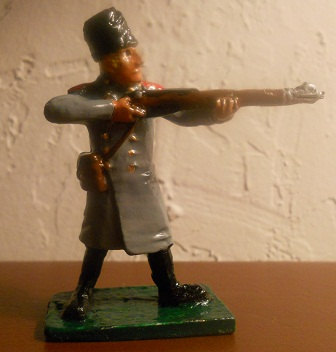rabble is expanding our Parliamentary Bureau and we need your help! Support us on Patreon today!
Readers of Western mainstream media might wonder why its reporting of the crisis in Ukraine is so spotty and, when it appears, why it is so profoundly skewed and biased. The answer lies largely in the prejudices and pre-determined scripts of its editors and writers.
A case in point is a commentary published December 12 in the National Post. It is written by an editor of the publication, Matt Gurney.
Gurney’s opinion commentary is framed as a report on the speaking tour to Toronto on December 7 by Yevhen Marchuk and retired U.S. Army General Wesley Clark. The two spoke to a fundraising dinner at a luxury hotel in the city. Their message was to urge that the threats, embargos and blockades by NATO against Russia and Crimea should continue and that the alliance should stand by the governing, right-wing regime in Kyiv.
Wesley Clark is the former NATO Supreme Allied Commander in Europe. He had a leading role in the NATO bombing of the former Yugoslavia in 1999. His military career ended in 2000, after which he joined an investment firm and tried his hand as a motivational speaker. He made several unsuccessful forays into U.S. politics. He has devoted the past year to pressing the U.S. and other NATO countries to keep up the threats and pressures against Russia–or as the Post editor puts it, Clark has spent the last year “trying to convince Western governments to take Russia’s invasion of Central Europe seriously.”
The Post editor cites Clark’s fantastic summary of the past 18 months of civil war by the right-wing government in Kyiv as follows: “[Russian President Putin] wanted Ukraine east of the Dnieper (river) [ie half of Ukraine]. Now, he’ll have to settle for a dysfunctional country he can keep in his pocket.”
“Ukraine is the frontline of freedom and democracy,” Clark told the editor.
Clark’s views fit nicely with the Post editor’s views, who describes the present situation in Ukraine in these words: “Both sides have pulled most of the heavy weapons back, and that means fewer civilian settlements being chewed over by artillery and mortar fire. But Russian forces – let’s dispense with the ‘pro-Russian’ fiction – continue to launch small raids across the lines to harass Ukrainian outposts…”
Yevhen Marchuk was a prime minister of Ukraine for one year in 1995. This was the time when the country’s state enterprises were being looted by the nouveaux riche lucky enough to have access to financing or centres of state power. They became the owners (‘oligarchs’) of the new Ukrainian economy and the country has largely stagnated or gone downhill ever since. Marchuk later served for a time as an adviser to President Viktor Yushchenko, in 2008. He has done several stints in Ukraine’s police and national security apparatuses.
The Post says Marchuk is one of Ukraine’s representatives to the weak and faltering Minsk-2 ceasefire agreement process. That someone as ideologically motivated as Marchuk would be a representative to a “peace process” helps explain why the government in Kyiv has been such a recalcitrant participant in Minsk-2.
With the passage of time, the hopes that the Minsk-2 ceasefire agreement signed on February 12, 2015 might proceed, and the small problem of an absence of proof, there are fewer and fewer claims of a “Russian invasion” of Ukraine appearing in mainstream media. The claim has receded to the realms of conspiracy theorists such as Wesley Clark.
Newspaper writers and editorialists in Canada, at least, seem to have finally cottoned on to the fact that associating too closely with the extreme right in Ukraine will come back to bite them some day. How to be associated, for example, with the Ukrainian extremists’ blowing up of electrical transmission lines from Ukraine to Crimea last month? That action and a food-transport blockade by Crimea launched by rightists against Crimea on September 20 were effectively endorsed by the government in Kyiv on November 23 when it announced a road transport blockade against Crimea. On December 16, the government announced a total trade blockade against the peninsula.
Clark’s appearance in Toronto apparently drew zero news coverage, judging by a web search. The visit and speeches by Marchuk and Clark were sponsored by the International Council in Support of Ukraine. The group is apparently flagging because the latest press release on its website dates from four months ago. Video selections posted on the group’s website of appearances on mainstream television broadcasts by its spokespeople date from more than one year ago.
The National Post is a daily newspaper distributed in some areas of Canada. It was founded in 1998 as a right-wing political project of tycoon Conrad Black. It is now a part of the Postmedia conglomerate, whose largest shareholder is Golden Tree Asset Management, a New York firm that specializes in stripping assets from troubled firms. Postmedia owns daily newspapers in most of Canada’s large cities. The conglomerate is deeply in debt. Its newspapers are shadows of their former selves with less and less content and centralized editorial control.
Roger Annis is an editor of ‘The New Cold War: Ukraine and beyond‘.
rabble is expanding our Parliamentary Bureau and we need your help! Support us on Patreon today!



